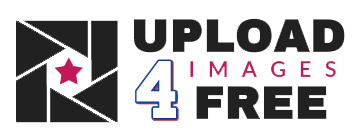As interest rates remain on the rise, homeowners are increasingly considering strategies to pay down their mortgages. The prospect of higher interest rates has prompted discussions about accelerating mortgage repayments. In this article, we will explore various considerations and strategies for paying off your mortgage, ranging from the benefits of reducing debt to the advantages of maintaining financial flexibility.

The Impetus for Paying Off Mortgages in a Rising Rate Scenario
With anticipation of the Federal Reserve’s adjustments to fund rates, homeowners are seeking ways to manage higher mortgage interest rates. Understand the impact of these changes on mortgage payments and why proactive measures might be necessary.
Higher interest rates can lead to increased mortgage installment amounts, prompting homeowners to assess their financial strategies. Address how these rising rates affect monthly payments and how they factor into the decision to accelerate mortgage repayment.
The Benefits of Paying Down Your Mortgage
Discover the potential financial advantages of reducing mortgage debt. Explore how lump-sum payments can save thousands in interest, lower mortgage service ratios, and free up monthly cash for other expenses and investments.
Elaborate on the benefits of paying off a mortgage early, including the potential for substantial interest savings and improved debt-to-income ratios. Explain how these benefits contribute to financial stability and peace of mind for homeowners.
Leveraging Good Debt: Mortgage as an Investment Tool
Not all debts are created equal. Delve into the concept of leveraging good debt to increase net worth through appreciating assets like a house, and why keeping some liquidity might be more prudent than paying off your mortgage entirely.
Explain the difference between good debt and bad debt, focusing on how mortgages fall under the former category due to their potential to appreciate in value over time. Highlight scenarios where paying off a mortgage can lead to reduced liquidity and financial stress during unforeseen events.
Opportunity Costs: Exploring Alternatives to Paying Down Mortgages
Consider the concept of opportunity costs when deciding whether to pay off a mortgage early. Discuss how investing in higher-return vehicles, such as the stock market or low-risk instruments, might outperform the savings from early mortgage repayment.
Offer insights into the opportunity costs associated with early mortgage payoff. Compare potential returns from investing in options like the S&P 500 ETF to illustrate how diversifying investments might lead to greater financial gains.
Tailored Strategies for Mortgage Management
Explore various strategies that allow homeowners to strike a balance between mortgage repayment and investment opportunities. Highlight options such as making partial repayments or using interest offset accounts to optimize financial flexibility.
Explain practical approaches to managing mortgage payments while maintaining liquidity. Provide details on making partial repayments to match current cash flows and the benefits of interest offset accounts in offsetting mortgage interest.
Conclusion
In a changing interest rate landscape, the decision to pay off a mortgage early requires careful consideration. Balancing the advantages of interest savings with the potential for higher investment returns is essential. Homeowners must assess their long-term financial goals and evaluate the impact of their decisions on overall financial stability. By understanding the various strategies and weighing the pros and cons, individuals can make informed choices that align with their financial aspirations and provide both security and growth.
